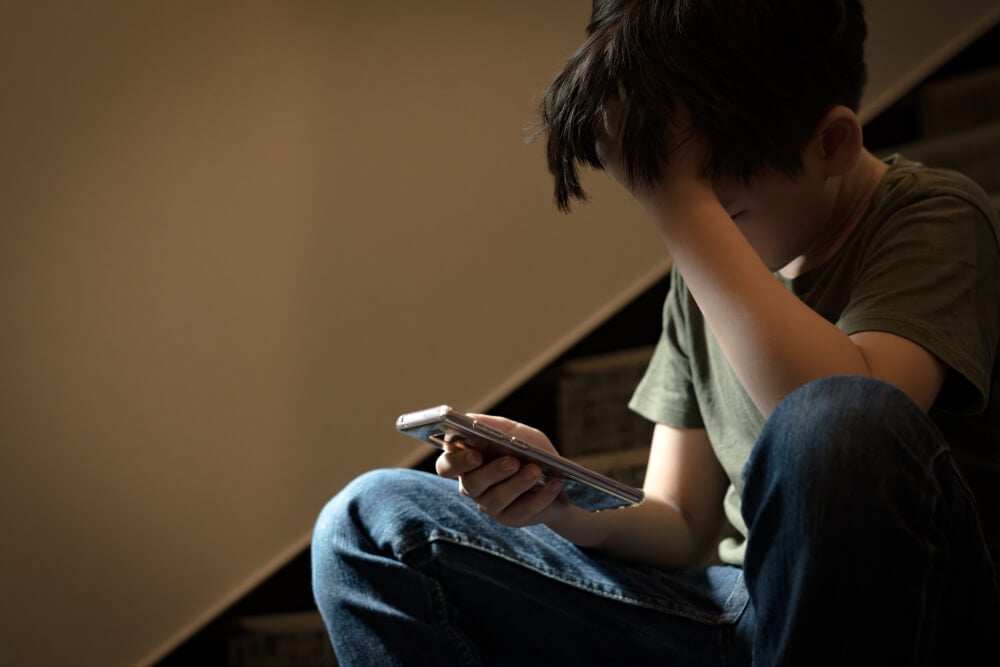Australia has taken a ground-breaking step by banning minors from accessing social media, although it still faces considerable resistance and doubts about the application of such a strict regulation.
All signs point to the passing of the pending legislation, which will set an age limit below which children cannot use a variety of communication and social media platforms. The authorities have not yet set the age limit, which will be between 14 and 16. They have announced that they want to move towards the upper threshold.
Australian Prime Minister Anthony Albanese is ready for his country to lead global action if needed. The conservative opposition also supports the Labour government's plans, paving the way for legislative action.
The greatest resistance to the new regulation comes from some experts and, to a certain extent, tech companies whose platforms will come under fire. The mood among teenagers, however, is off the radar, and they are certainly not enthusiastic about the plans that adults are making for them.
Mental health care
PM Albanese, like a concerned parent, wants to get teenagers away from endlessly using online platforms and, as he says, "onto the footy fields and the swimming pools and the tennis courts."
"We want them to have real experiences with real people because we know that social media is causing social harm," Albanese told the national broadcaster ABC.
However, Australia's move primarily stems from concern for the mental health of children exposed to inappropriate content on social media, which they can now fully access.
Of course, there are also efforts to protect children from online violence by unknown predators, which is a worrying global phenomenon.
A stranger contacted one in three girls and a quarter of boys in Australia online
Former High Court justice Robert French has produced the most comprehensive study to date for the South Australian government justifying restrictions on minors' access to social media and online communication platforms.
According to one of his findings, a stranger contacted one in three girls and a quarter of boys in Australia online, and up to one in five teenagers received unwanted, inappropriate content that was either violent or pornographic.
Australia is one of the countries with the largest online population. According to IT industry data, four-fifths of the 26 million citizens use social media. Three quarters of Australians aged 12 to 17 use YouTube or Instagram, some of the most popular in a long list of social media and platforms that may soon be unavailable to them.
Difficulty establishing control
In this respect, the step taken by the authorities is full of challenges, even risky, because there is virtually no experience globally that could help the Australian authorities with such a strict regulation as is planned.
Some past experiences, such as those from the European Union, have shown that it is difficult, almost impossible, to introduce effective control over the implementation of regulations. Last year, France issued a regulation requiring technology companies to deny people under the age of 15 access to their platforms.
Regulators in Australia are likely to face the challenging problem of age verification, or determining the so-called "digital majority"
However, regulators in Australia are likely to face the challenging problem of age verification, or determining the so-called "digital majority."
Every previous method of determining the age of social media users has been controversial from the point of view of protecting privacy, i.e., personal data, whether it was verification of a personal document or facial analysis.
Without government intervention, the age limit of 13 years set by companies for access to online platforms has little effect and is easy to circumvent.
A study in France has shown that the actual age threshold is much lower, as even 20% of children between the ages of 7 and 10 use TikTok intensively.
What will teenagers do after their 16th birthday?
While the Australian authorities acknowledge the complexity of this issue and plan to implement new measures gradually and cautiously, the regulation essentially aims for a ban, a view that many experts reject.
The first negative consequence that will emerge if the new regulations are passed is that teenagers faced with the ban will easily and quickly migrate to the online underground, where bad and unsafe content will undoubtedly await them.
 The legislation could drive children to lower quality online spaces - Prof Daniel Angus
The legislation could drive children to lower quality online spaces - Prof Daniel Angus
“This knee-jerk move undermines the joint inquiry and deliberative democratic principles and threatens to create serious harm by excluding young people from meaningful, healthy participation in the digital world. The legislation could drive children to “lower quality online spaces,” said Daniel Angus, a professor at the Queensland University of Technology.
Banning access to social media can have a very negative impact on certain groups of teenagers who find it difficult to find an alternative way to connect with the world, such as those who live in remote areas or are isolated at home for some reason.
One of the uncharted waters that does not yet have a concrete answer is how teenagers will behave in the cybersphere when their restraining order expires, for example, when they turn 16 years and one day old. Will they be more responsible and less risk-averse than they were two days earlier when they were still under the protection of the law?